My Ph.D. research
For five years, I dedicated myself to neuroscience research, driven by a question that deeply inspired me.
To do so, I immersed myself in the scientific literature, planned and conducted experiments and analyzed a wide variety of data. Through this journey, I honed my ability to carry out meticulous, data-driven research- a skillset I now apply to understanding and enhancing user experiences.
Some of my research results had a profound, positive impact on women's mental health. These results not only fueled my passion for research but also empowered me personally, reinforcing my belief in the power of insight to drive meanginful change.
The process
Research on the topic
The state-of-the-art of the topic
Around 20% of the population will suffer at some point in their lives from disorders such as anxiety, depression or post-traumatic stress disorder, and women are twice as likely as men to suffer from them. In addition, in recent years, the prevalence of suffering from mood disorders has skyrocketed due to COVID-19.

Articles from the American Psychological Association, The Lancet and the BBC.
One of the common symptoms of anxiety, depression and post-traumatic disorders is avoidance behavior, the action of intentionally eluding a situation because of the discomfort and unease that it produces. One example would be staying home because the thought of leaving the street elicits stress responses due to previous negative experiences when going out to the street.


Moreover, there are some molecules found in the brain that are known to affect this type of behavior. Previous research suggested that a specific type of molecule, called orexins, could affect avoidance behavior.
Foundational research
In order to get a better understanding of avoidance behavior and orexins, I researched the topic by:
-
Having meetings with senior researchers that were experts on this topic.
-
Performing a systematic review of scientific papers on the topic. By the end of the thesis, I read +550 scientific articles.
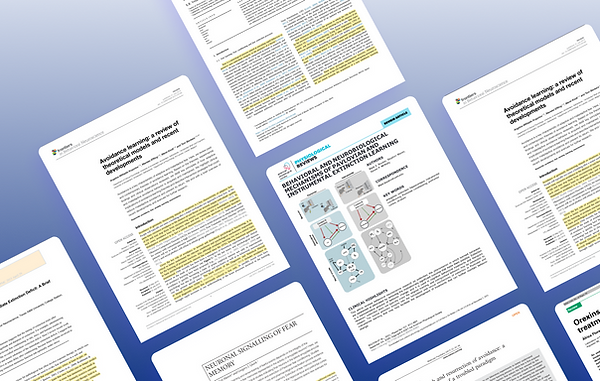
Setting goals, questions and objectives
The research showed that some gaps in the literature exist, and these helped us define our main question to answer, which was:
Can avoidance behavior be affected by orexins found in the brain?
Having this general question, we needed to break it down into specific questions and turn them into objectives:
Objective 1: Can orexins modify how animals learn avoidance behavior?
Objective 2: Can orexins modify how animals forget avoidance behavior?
Objective 3: Can female sexual hormones facilitate forgetting avoidance behavior?
Objective 4: Can orexins also affect normal anxiety and fear levels?
Objective 5: Can we use electrical brain stimulation to improve forgetting avoidance behavior?
Make a plan
The specific objectives led to designing specific experiments. I planned them in advance to foresee any possible complications and selected the best techniques for each experiment.
These are the main techniques used in my Ph.D. thesis:
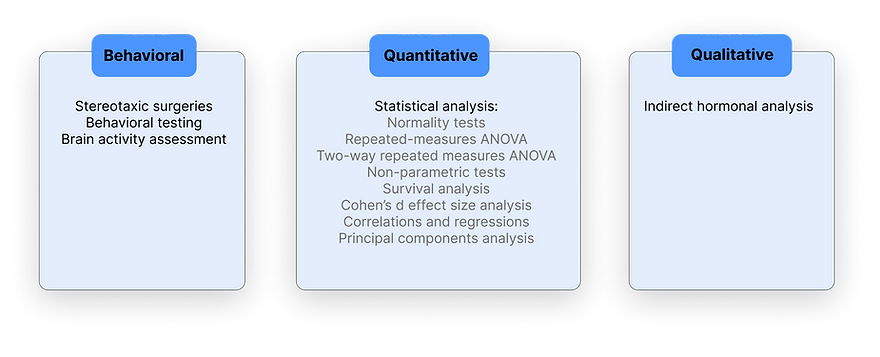
Conduct the research
I conducted the experiments and later on analyzed the results of each one. During 2019, I learned as much as possible about the topic and planned the research. The behavioral experiments and their analysis were performed between 2020 and 2023.
During the first months of 2022 I performed a lab stay at the Albert Einstein College of Medicine (New York).
And the end of 2023 and the beginning of 2024 were the periods in with I wrote the manuscript and finally defended my thesis on the 2nd of May of 2024.
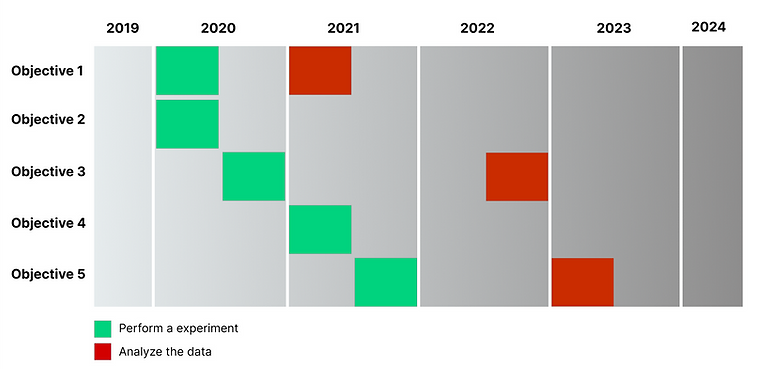

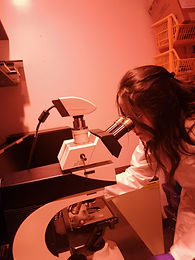


Analyze results and divulge
After completing the final analysis, I could answer the 5 specific questions and the general question defined at the beginning of the research process.
In order to share these results with the scientific community, I wrote the full manuscript of my thesis (+300 pages), designed the cover of the manuscript, and performed the thesis defense for an international panel on the 2nd of May of 2024.
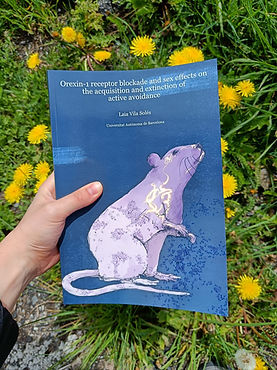

Apart from my Ph.D. defense, I participated in different media to divulge scientific knowledge I gathered during these all these years of research.
Radio interview
Catalunya Ràdio. Check the full interview here.
Microtalk

Festa de la Ciència 2024.
Thesis in 4 minutes contest
Universitat Autònoma de Barcelona. Awarded with Joan Oró's prize. Check the full contest here.
Radio interview

Ràdio Farró.


